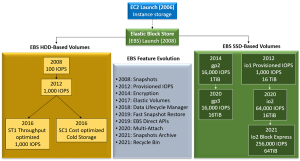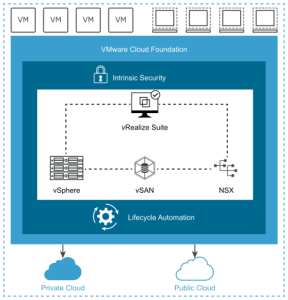
In this era of Cutting Edge Technology and the internet, ‘Cloud’ is no longer considered the buzzword nowadays, as it’s found everywhere and across industries, whether it be Automation, Manufacturing, Banking, Education, Health, Hospitality, or Enterprise. Almost all vertical businesses rely on cloud-based technology and tools.
Now, you must have heard about cryptocurrency and its blockchain technology. Blockchain technology has rapidly gained traction over the past few years. And among tons of platforms, Ethereum, one of the popular platforms for DApp, was brought to the limelight.
Demand for Ethereum-based DApps and smart contracts is increasing in today’s tech world. So too, does the need for efficient and cost-effective development tools. This is where cloud computing comes in. Cloud-based tools for Ethereum development offer a range of benefits, from scalability to cost-effectiveness, and are becoming an increasingly popular choice among developers.
In this post, we’ll explore everything you need to know about cloud-based tools for Ethereum development, including their benefits, the different types of tools available, and how to get started.

Ethereum is a decentralized, open-source blockchain platform that enables developers to build and deploy decentralized applications (DApps) and smart contracts. Ethereum allows developers to create and execute smart contracts, which are self-executing contracts with the terms of the agreement between buyer and seller being directly written into lines of code.
Meanwhile, cloud computing provides developers with a flexible and scalable infrastructure to host and run their Ethereum-based applications without the need for costly and complex on-premise hardware.
By leveraging cloud technology, developers can easily deploy and scale their Ethereum nodes, test and deploy their smart contracts, and build and run their DApps on a cost-effective and highly available infrastructure. Cloud technology offers built-in security features, such as encryption and firewalls, which can help protect against attacks and unauthorized access.
Easy and Affordable Cloud-Based Tools for Ethereum Development
Building decentralized applications (DApps) on the Ethereum blockchain requires developers to understand blockchain technology. In addition, the ability to set up and maintain a complex development environment. It can be time-consuming and expensive, especially for smaller teams and individual developers.
That’s where cloud-based tools for Ethereum development come in.
Cloud-based tools provide developers with an easy and affordable way to create, test, and deploy their DApps and smart contracts. By leveraging the power of cloud computing, developers can access pre-built development environments, libraries, and templates that make it easy to start Ethereum development.
One of the main benefits of cloud-based tools is scalability. With cloud computing, developers can easily scale up or down their infrastructure. And most importantly, without worrying about the hardware and maintenance costs associated with on premise solutions. It makes it more comfortable for developers to focus on building their DApps and smart contracts rather than worrying about infrastructure issues.
The next cloud-based tool is cost-effectiveness. Using cloud computing, developers can save money on hardware, maintenance, and energy costs, which can be a significant expense for on premise solutions. In addition, cloud-based tools often offer pay-as-you-go pricing models, meaning developers only pay for the resources they use rather than investing in expensive hardware upfront.
Cloud-based tools for Ethereum development also offer a range of features that can help improve the efficiency and effectiveness of the development process. These tools often include automated testing, version control, and integration with other tools and services, which can help streamline the development process and improve the overall quality of the code.
Key Note: Cloud-based tools for Ethereum development are a great way for developers to create, test, and deploy their DApps and smart contracts on a cost-effective and highly available infrastructure. With the power of cloud computing, developers can focus on building innovative and transformative applications that can change how we interact with technology and each other.
Ethereum Development: Types of Tools
Cloud-based tools for Ethereum development offer a wide range of options for developers.
These tools provide an accessible and affordable infrastructure for developers to create, test, and deploy their code without costly hardware or maintenance.
One tool available for cloud-based Ethereum development is cloud-based Ethereum development environments. These tools provide a complete Ethereum development environment in the cloud, including pre-configured nodes, smart contract templates, and testing frameworks. These environments make it easy for developers to start Ethereum development without setting up their local development environment.
Another type of tool is Ethereum development platforms. These platforms offer a comprehensive suite of tools for Ethereum development, including smart contract editors, testing frameworks, and deployment tools. They often have intuitive interfaces that make it easy for developers to create, test, and deploy their code with minimal hassle.
Blockchain-as-a-Service (BaaS) platforms are another popular option for cloud-based Ethereum development. These platforms provide a cloud-based infrastructure for deploying and managing Ethereum nodes and tools for building and deploying smart contracts and DApps. They offer a variety of benefits, including scalability and cost-effectiveness, making them a popular choice for many developers.
Smart contract testing tools are another useful tool for cloud-based Ethereum development. These tools enable developers to test their smart contracts in a simulated environment before deploying them to the live network. It can help catch bugs and errors before they cause any real-world issues.
Smart contract auditing tools are also available for cloud-based Ethereum development. These tools provide automated security audits of smart contracts to help identify potential vulnerabilities and ensure code integrity. It can be a critical step in ensuring the security of DApps and smart contracts.
Finally, integrated development environments (IDEs) provide a comprehensive development environment for Ethereum, including code editors, debugging tools, and testing frameworks. These tools help streamline the development process and make it easier for developers to write high-quality, secure code.
Key Note: Different types of cloud-based tools are available for Ethereum development, each with its features and benefits. Developers can use these tools to reduce costs, streamline their development process, and build innovative and transformative DApps and smart contracts on the Ethereum network.
The Bottom Line
In conclusion, cloud-based tools for Ethereum development offer an accessible and affordable infrastructure for developers to create, test, and deploy their code. These tools provide benefits such as scalability, cost-effectiveness, and built-in security features.
With various options available, from cloud-based Ethereum development environments to smart contract testing and auditing tools, developers can easily start building DApps and smart contracts without worrying about the complexities of on premise hardware.
Cloud-based tools for Ethereum development offer a streamlined and efficient way for developers to focus on building innovative and transformative applications that can change how we interact with technology and each other.
By Manish Kumar Singh
Originally posted on March 29, 2023 @ 11:18 am


